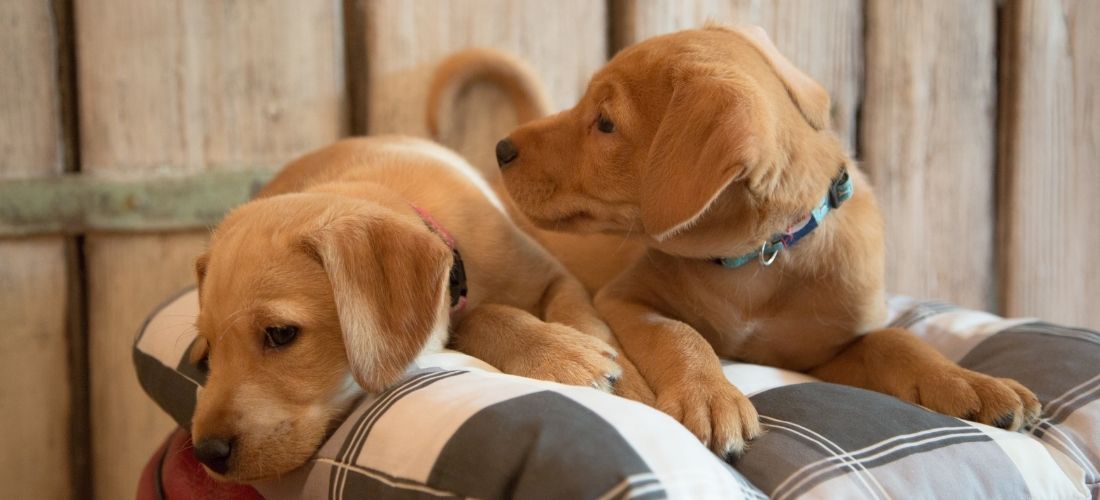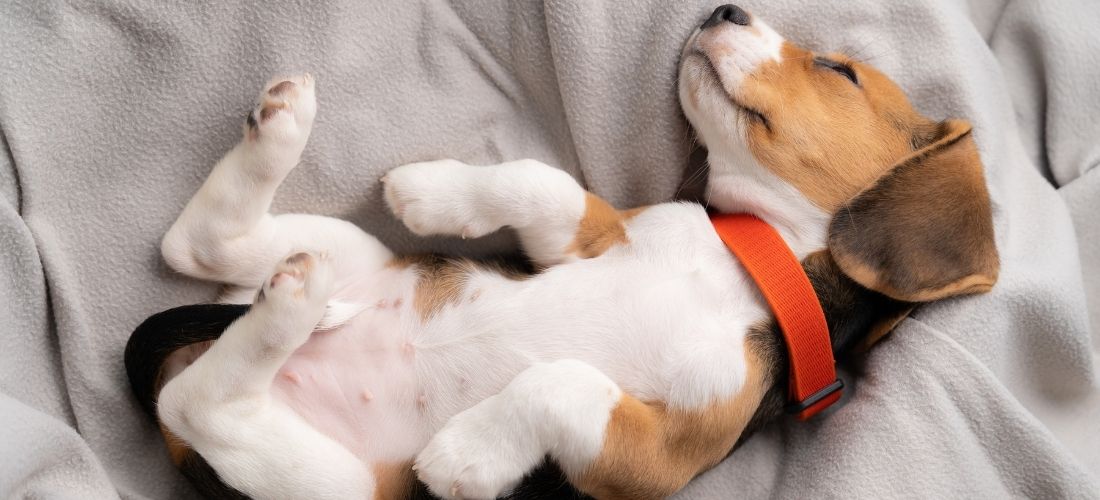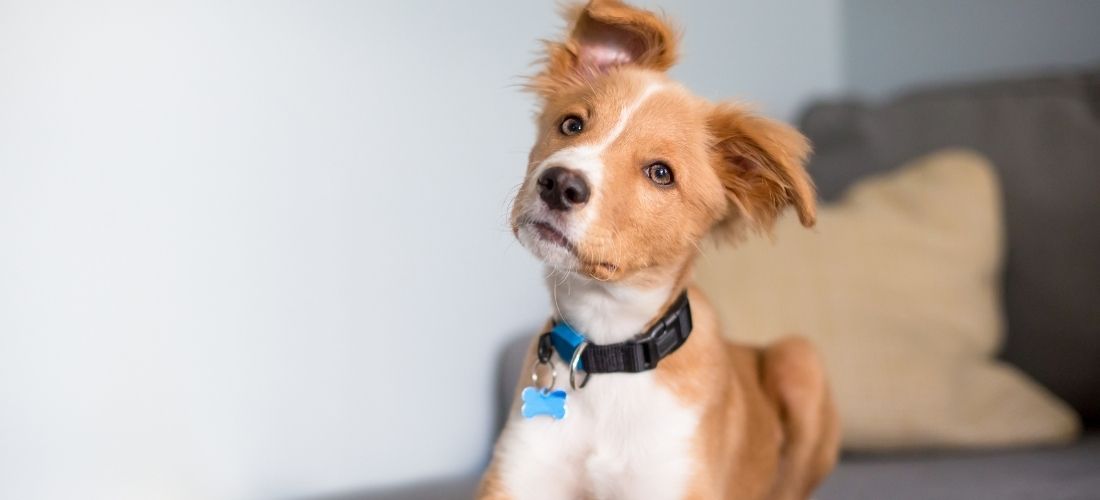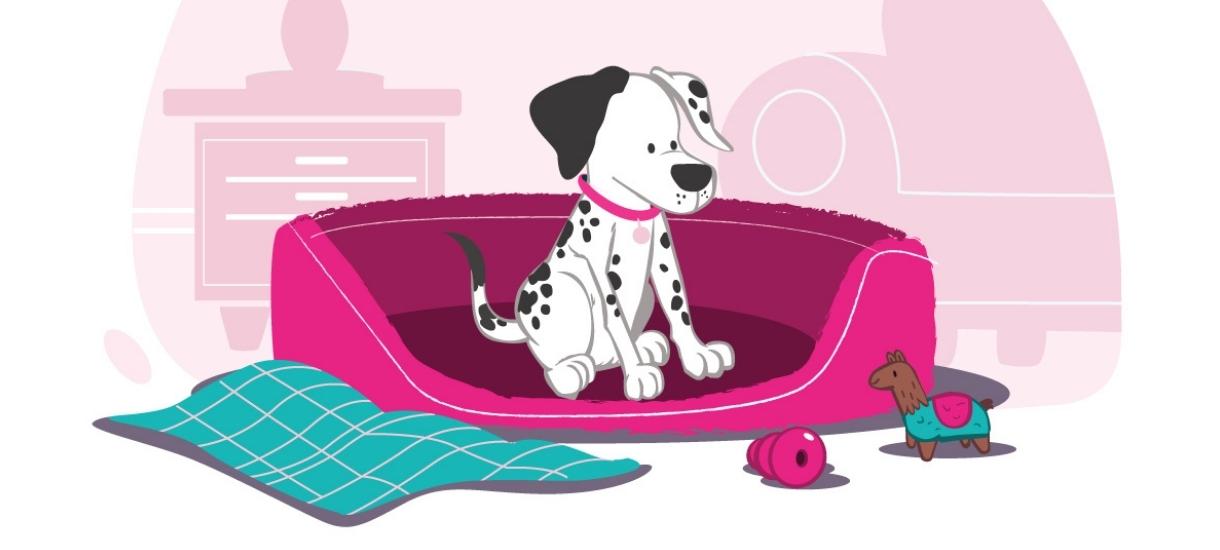Puppy socialisation
Socialisation is really important for your puppy as it helps them to become a happy, friendly and confident adult. Your puppy will have their ‘socialisation period’ in their first few months of life and it’s really important that during this time they have lots of positive new experiences to help them understand what to expect, and how to react, in a variety of situations later on in life.
How socialisation helps your dog

Between the ages of 4 weeks and 12 weeks, your puppy will have a ‘socialisation period’ – this is the time when your pup’s brain learns about new things, and is developing to be resilient and flexible. This time has a big influence on your puppy, as it teaches them about the world they live in and how to adapt, cope with and enjoy normal, everyday events. A well-socialised puppy knows how to react and respond to a range of different situations and is more likely to be happy and confident as an adult.
Your puppy’s socialisation period is really important, as their ability to learn about new things doesn’t last forever. Sadly, dogs that haven’t been socialised at a young age tend to be more anxious and unsure about how to react, resulting in behaviour problems and fears and phobias. This can have a big impact on your dog’s quality of life.
Fortunately, these problems can be avoided in many cases by helping your dog with the right socialisation early on – as well as continuing with consistent positive reward-based training and ensuring that all of their welfare needs are being met throughout their lives.
Puppy development timeline

Puppies’ brains develop fast, so it’s crucial that your puppy learns about everyday experiences during their first months of life. Your puppy will grow and change a huge amount during this time, and their socialisation period will play a big part in their development.
To help you understand how they develop within those first few crucial months, we’ve put together a few key development milestones that your puppy will go through:
0 - 4 weeks
- When your puppy is born, they will usually be kept in a special, warm place at their breeders with their mother and littermates. They can smell, but not see or hear when they are born, so at this stage they are completely reliant on their mother.
- Puppies start to crawl from around 1-2 weeks old. Their eyes open from around 10-12 days and their vision will continue to develop over the next few days to weeks. Their hearing develops when their ear canals open at around 14-16 days.
- By 4 weeks old, puppies are usually able to walk and start exploring their environment.
4 - 8 weeks
- Your puppy’s socialisation period starts at 4 weeks old. At this age your puppy can move, see and hear, and will start investigating the world around them.
- Your breeder should start helping your puppy to learn about the world around them in a positive way before they come home with you. This could include meeting people – both in the household and new people – and making sure your puppy learns about daily routines. They may also arrange for your puppy to meet other dogs, go to a few different places, or meet children. Try to find a breeder that has a similar lifestyle to you, so your puppy’s early experiences are as similar to their new home as possible. The puppy contract is really useful to make sure you have all the information you need about your new puppy, including their early experiences.
- Many puppies will also have their first trip to the vet while with their breeder. This will often include a health check, first vaccination and implanting a microchip.
8 - 12 weeks
- Your puppy will often come home with you around 8 weeks old.
- During this time, your puppy will be in their socialisation period, so you’ll need to make sure they have positive new experiences and get used to things they might come across later in life. Read our puppy socialisation tips below.
12 weeks onwards
- The benefits of good socialisation will stay with your puppy, but it’s important to make sure you continue to teach your dog about new experiences in a positive way, and keep up with their training throughout their lives.
Socialising your puppy

Your puppy’s socialisation period is key to their development, and there’s lots of things you can do to help them learn about the world around them in a positive way – including sights, sounds, smells, places, new people and new dogs.
Before you socialise your puppy with other dogs, always ask your vet when your puppy will be protected by their vaccinations. Your puppy shouldn’t go to certain places or mix with unvaccinated dogs until they’re fully covered by their vaccines. Sadly, diseases covered by the vaccines, such as Parvovirus and Distemper, can be fatal for puppies if they catch them. It is, however, important that your puppy still gets to experience new situations as soon as possible, so you can start socialising your puppy in gardens (as long as they’re not used by unvaccinated dogs), you can carry them when you’re out and about so they can meet new people and experience new places, and you can allow them to meet fully vaccinated older dogs. Your vet can give you further advice on what’s safe to do with your puppy before their vaccine course is complete.
To help you get started with socialising your puppy, here are our vets’ top socialising tips:
- Make sure that their experiences are good: Socialisation needs to be positive, so you’ll need to find ways to make sure your puppy enjoys the new things they come across. You could do this by using treats, toys and praise. If your puppy has negative experiences during their socialisation period, this can make them nervous when they come across the same thing later in their life, or it can even result in more generalised fears. If your puppy seems anxious or afraid at any point, remove them from the situation and take them to a place where they seem calm and happy. Try again with the experience later or another day, staying positive and keeping your puppy further away until they are comfortable.
- Aim for a variety of experiences: Allow your puppy to experience and meet a wide variety of people, sounds, smells and places to make sure they get used to all of the things they might come across during their life with you.
- Build up gradually: Everything will be new to your puppy when they’re young, so it’s easy for them to get overwhelmed. Make sure you introduce new things gradually – start off with a trip to a local row of shops before you go to a busy town centre, take them on a quiet road before a busy road and so on. When your puppy is calm and relaxed, give them praise and treats so that they enjoy the experience.
- Don’t introduce too many new experiences in one day: Instead, spread them out over several days if needed, aiming for short, positive experiences which you can repeat until your puppy is happy with them. You may find that your puppy becomes tired, stressed or very over-excited when you’re out with them. At these times, it’s best to take them home for a rest then head back out once they’re refreshed.
- Time alone: It’s important that your puppy gets used to being without you. Leave your puppy for a few minutes at first, such as while you’re making yourself a cup of tea. Gradually build up the time until they’re happy to be left in the house on their own for longer periods.
- Keep a close eye on your puppy when playing with other dogs: Don’t let their play get too boisterous or over-excited. Try to stick with friendly dogs that you know to start with and watch the body language of both dogs – take your puppy away if it’s starting to get a bit too much for either of them. Remember, it’s important for your puppy to only meet fully vaccinated dogs until they’ve completed their own vaccination course.
- Don’t forget about routine: Although it’s really important to help your puppy experience lots of different things, it’s also essential they get used to your usual rhythm and routine. While it can be tempting to play with your new pup all day, they also need to get used to their own time, as well as their regular bedtimes and meal times. Even if you’ve taken some ‘pup-ernity’ leave to help your new arrival settle in, set aside a couple of days each week for you and your puppy to stick to your regular daily schedule, so they know what to expect and can learn how to be happy on their own.
- Consider puppy classes or puppy socialisation groups: This will give them a great chance to meet other puppies and get used to a range of other dogs. Ask whether your vet practice runs puppy socialisation groups and, if not, ask where the nearest one is. Don’t forget to check which vaccines your puppy needs before they go to their first class to make sure they stay safe!
- Get your puppy used to being in the car: Travel training and socialising your dog with the car is really important, as it can help your dog to stay relaxed on car journeys. Remember to always make sure they're safe and secure when in the car.
- Socialisation CDs and playlists: These are a great way to get your puppy used to noises they will hear during their lifetime – especially if your puppy is unlikely to hear them in real life during that all important socialisation period. Lots of dogs are scared of fireworks because they didn’t have the chance to hear them when young. A CD or playlist you can help your puppy get used to noises like this so that they don’t find them scary later on. Ask your vet for more information about these.
- Make sure your puppy gets used to their collar: Your puppy will need to wear a collar and tag when they’re out for their walks, as it’s a legal requirement, so it’s best introduced early in life to help them get used to wearing one. If you’re thinking of using a harness for your dog, it’s a good idea to help your puppy get used to the fit and feel of it by letting them wear one around the house for a few hours. That way they’ll be ready to take their first steps into the big wide world as soon as their vaccine coverage is complete!
As well as socialisation, your puppy will also benefit from starting their training as soon as possible when they come home with you. When training, make sure you use reward-based methods, and stay consistent with the words and actions you use and the behaviours you’re asking for. Key skills to focus on include toilet training and coming when called (recall). You might also want to consider crate training.

